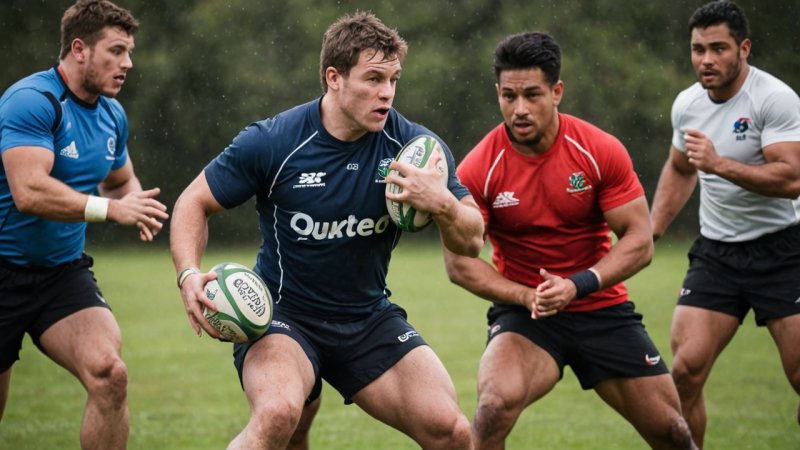Rugby is a physically demanding sport that requires a unique blend of strength, speed, endurance, and tactical awareness. Whether you're a seasoned player or just starting out, implementing effective training techniques can significantly enhance your performance on the field. In this article, we'll share top training tips that can help you become a better rugby player while prioritizing safety and efficiency in your practice. From honing your skills to improving your physical fitness, each of these strategies will contribute to your overall development as an athlete.
Focus on Strength Training
Building strength is fundamental for any rugby player. A well-structured strength program will help you increase your power, which is crucial for tackling, scrummaging, and breaking through defenses. Incorporate compound exercises such as squats, deadlifts, and bench presses into your routine. Aim for a mix of heavy weights and lower repetitions to build maximum strength. Additionally, consider incorporating plyometric exercises like box jumps and medicine ball throws to improve your explosive power.
Improve Your Agility
Agility is key in rugby, as players need to change direction quickly while maintaining speed and balance. Incorporate agility drills into your training regimen, such as ladder drills, cone sprints, and shuttle runs. Setting up a course with cones can help mimic game scenarios where quick movements are necessary. Focus on footwork and body positioning during these drills to enhance your overall agility on the field.
Prioritize Endurance Training
Rugby matches can last up to 80 minutes, requiring players to maintain a high level of endurance throughout. Incorporate both aerobic and anaerobic training into your routine. Long-distance running or cycling can build your aerobic base, while high-intensity interval training (HIIT) can improve your anaerobic capacity. This combination will prepare you for the relentless pace of a rugby match and help you recover faster between plays.
Master Your Skills
Technical skills are essential in rugby, and consistent practice is vital for improvement. Spend time working on your passing, tackling, and kicking techniques. Use drills that focus on specific skills, such as passing under pressure or tackling form. Watching game footage can also provide insights into positioning and decision-making during play. Remember, repetition is key to mastering these skills, so dedicate time each week to practice.
Emphasize Teamwork and Communication
Rugby is a team sport that relies heavily on communication and collaboration among players. Engage in team drills that promote teamwork, such as scrimmages and set-piece practices. Focus on developing a common language with your teammates to enhance on-field communication. Discuss strategies and play formations during training sessions to ensure everyone is on the same page. Building strong relationships within the team will foster trust and improve overall performance during matches.
In conclusion, becoming a successful rugby player requires dedication to both physical training and skill development. By focusing on strength training, improving agility, prioritizing endurance, mastering technical skills, and emphasizing teamwork, you can enhance your performance while ensuring safety on the field. Remember to listen to your body and incorporate rest and recovery into your training plan to avoid injuries. With the right approach and mindset, you'll be well on your way to achieving your rugby goals.






